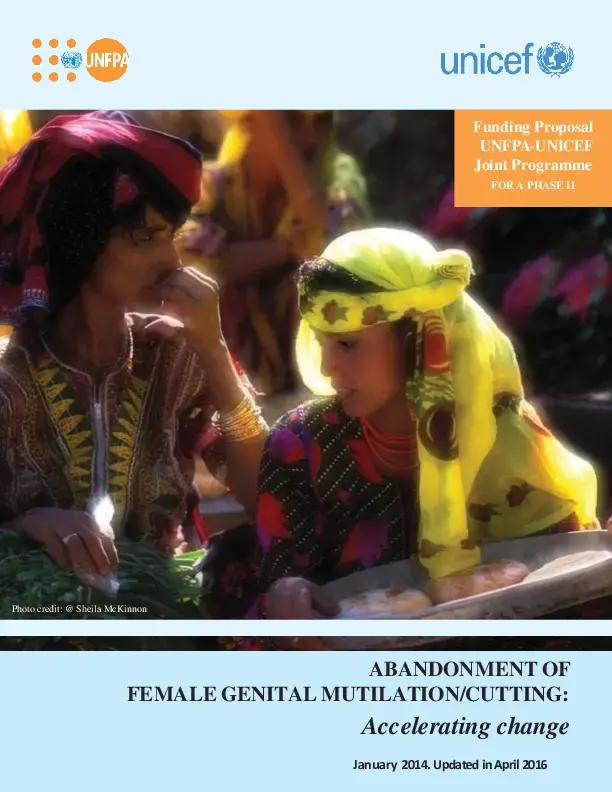
Funding Proposal UNFPA-UNICEF Joint Programme on Female Genital Mutilation (Phase II)
Publication date: 02 June 2014
Author: UNFPA
Publisher: UNFPA and UNICEF
The UNFPA-UNICEF Joint Programme on Female Genital Mutilation/Cutting (FMG/C) is supporting national governments and civil society leadership, action and accountability towards the elimination of FGM/C, and it invests in capacity building to support these efforts. This ensures a more articulated and coherent common position in the United Nations on this issue, within the broader common mandate of the promotion of human rights.
Phase II of the UNFPA-UNICEF Joint Programme on FGM/C is actively contributing to further scaling up the implementation and sustainability of the common, coordinated approach, which is yielding results toward ending FGM/C. The main programmatic innovation introduced by the Joint Programme is the use of a social norms perspective to guide the selection of an appropriate mix of strategies and activities that will be most conducive to self-sustained social change.
By promoting and strengthening partnerships that bring together a multitude of government and civil society institutions and organizations to encourage consensus on the common, evidence-based approach, the Joint Programme encourages multi-sectoral interventions, including in the legal and policy area, health system strengthening, communication using media, girls and women empowerment and engagement with influential leaders, such as traditional and religious leaders. Attention is placed on how the interplay of interventions will influence social expectations, leading to a new, self-sustaining situation where there is common agreement and social reward for keeping girls uncut, thereby better fulfilling their human rights and enhancing their opportunities to be healthy and prosper.